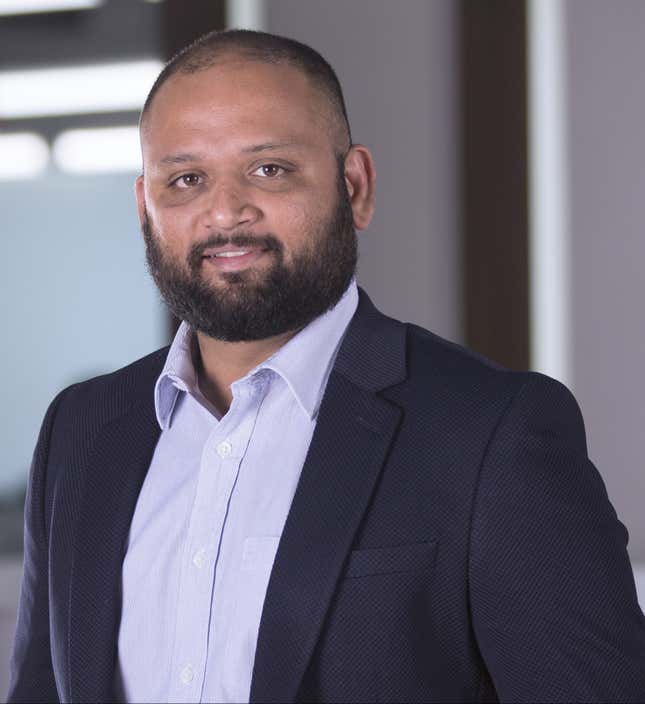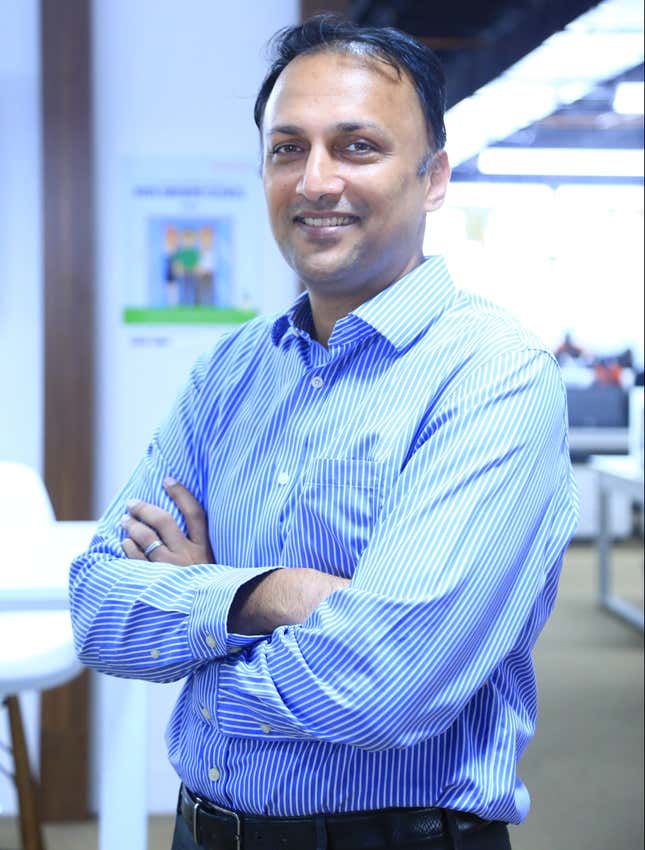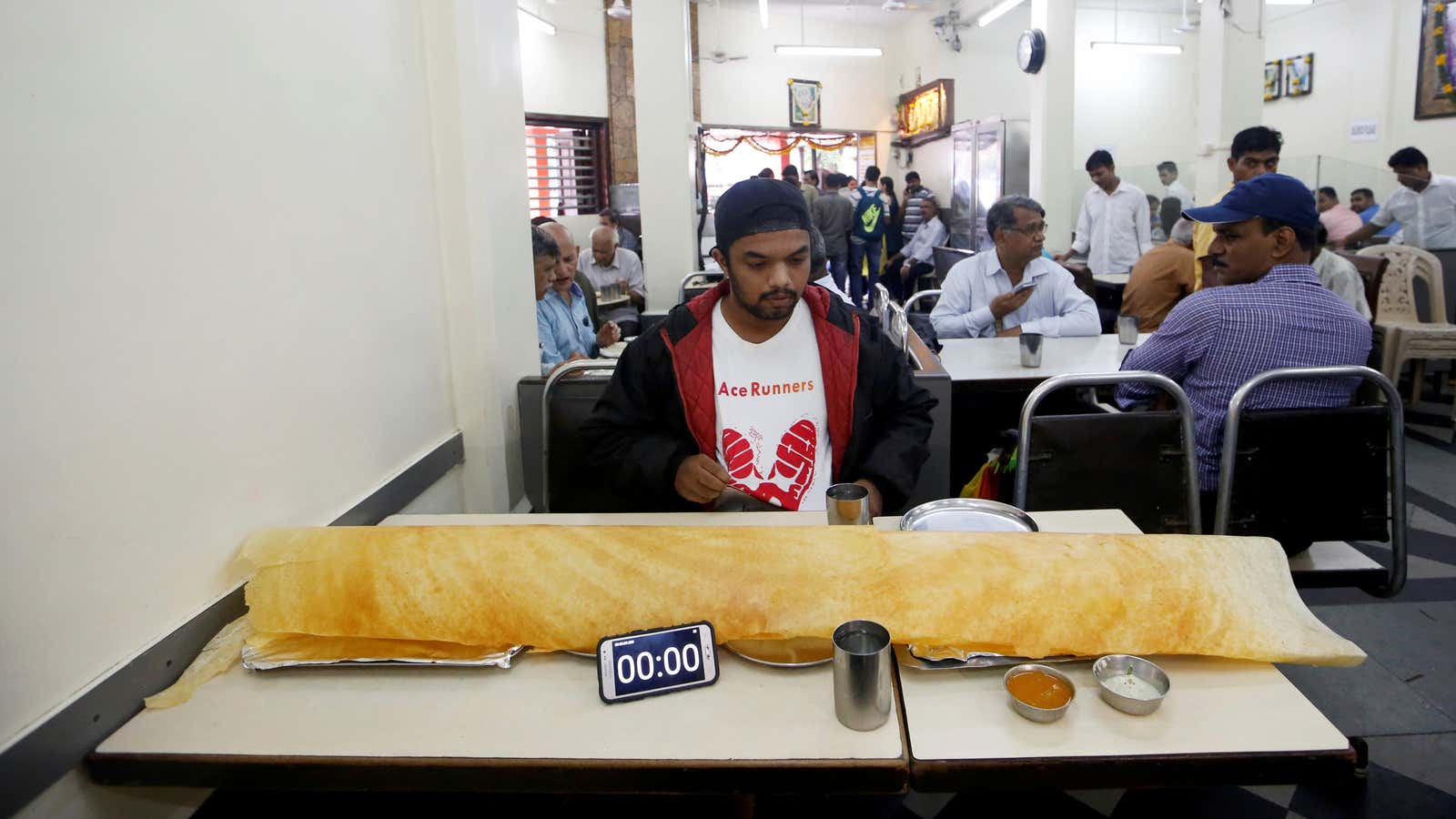From senior-level engineers to female delivery executives, India’s fastest unicorn Swiggy says it will continue to hire aggressively this year. What is the food aggregator looking for? Quartz spoke to its chief operating officer (COO) Vivek Sunder and vice-president of HR Girish Menon.
Edited excerpts:
What is that one job that is going to be the future at Swiggy?
Menon: One role that is going to be a game-changer for us is the data scientist. Given the way we operate, the chief data scientist is a key position for us.

This role improves product experience and business performance by applying statistical methods and AI models to all relevant facets of the business.
What kind of skills do you look for while hiring people for data sciences and other key positions?
Sunder: Conflict-solving, emotional intelligence, service orientation, and cognitive flexibility are some of the skills that are going to be important for us in the future. I am not talking short-term but 10 years from now.
Right now, we are a company that gets humans to produce food. We might get machines to produce food in the future but we will still be selling and talking to humans. So, understanding how people feel and how we can make them feel better will be required in jobs of the future for us.
For example, after a long day at work, when you come home, and you want to order food, you want something different and you want variety. But in the morning, when you are rushing for work, you do not care about a wide variety of restaurants. You care about reliability. The service is the same, but the occasion is different—a working day dinner versus a working day breakfast. We need to understand these different behaviours at scale and that is what will give us tremendous advantage. The task of procuring the order, preparing the food and delivering it is rather mechanical in nature. People who understand the nuances of human emotion and behavioural science are going to give companies like us competitive advantage and these skills are not mechanisable yet.
How hard is it for you to find leaders for these new verticals?
Menon: Data scientists are few and far between and Swiggy needs people who are agile and can work in an aggressive startup scenario.
Sunder: I am not that worried about our future leaders. There is a new book called Made-in-India Managers by R Gopalakrishnan and Ranjan Banerjee. It talks about the secret sauce that makes Indian managers successful at global companies. To summarise, there are mainly three ingredients behind the success of Indian leaders.

First, there aren’t many countries in the world where the single focus of the family is the child’s education. In India, even lower-middle-class parents are ready to spend a large proportion of their income on the education of their children.
Second, shit happens in India. When you think something will work, it doesn’t work. Our environment throws a lot of curveballs at you, and we learn to deal with this volatile environment from an early age. This makes our managers agile.
The third aspect—Indians are much more open to copying and learning from other cultures. Swiggy is an India-only business and we are solving an India-only problem, yet our teams have visited 10 different countries to try and learn from them.
Vivek, you were the managing director for Procter & Gamble in east Africa before becoming Swiggy’s first COO. Do you think managing a traditional company requires different skills than running a startup?
There are more similarities than differences. But a mid-stage startup like us needs a sense of urgency and productive paranoia among its managers. A company that has been around for 180 years does not think it is going to keel over and die so it tends to take slower actions.
How has an Indian engineer changed in the last 10 years?
Menon: Earlier engineers were looking for stability. Now they want more learning opportunities and they take risks. They can comfortably join services companies but I see them joining startups. When I started working, 15-16 years ago, there was a big fascination with going on-site. Going to the US was a big thing. It has reduced a lot. They are ready to work from anywhere as long as the quality of work is good.
Indians engineers are also moving away from unidimensional roles to variety. They are moving towards full stacks and they want to rotate their roles.
Let’s talk about the gig economy and the criticism that gig workers are not treated fairly in India. You have 1,95,000 delivery executives at Swiggy. What kind of backgrounds do they come from?
Sunder: We have people coming from different cohorts. First, we have people who work part-time for us because they have two jobs. Two jobs could be “I study in the morning and I am essentially doing the night shift at Swiggy.” This is to earn a bit of pocket money.
The other group is female riders. That number—300 right now—is not too big but it is rising. They are basically augmenting family income and they enjoy the flexibility of the gig economy.
There is then a third group that does this almost like a full-time job. The good thing is that if they work really hard they can hit their financial milestones. There are many people who have cleared family loans or bought homes by working really hard in the gig economy for a few years.
Now, the reality is that the criticism around the gig economy isn’t entirely unfair. A full-time job does have more security. We are trying to offer our part-time executives some of the benefits that we offer our full-time workers.
Menon: I also want to add that we have gig workers in high-skilled jobs as well. We have gig workers in engineering, design, HR. You will see more gig workers coming into the startup ecosystem.
Which company would you like to hire data scientists from?
Menon: One company that comes to my mind is Amazon because they have high complexity, large volumes, and a Day 1 culture.
